Your tap water coming through your shower usually has high mineral content. It may also contain trace levels of metals, pharmaceuticals, and even bacteria, according to the Centers for Disease Control and Prevention (CDC). These contaminants in your water may cause reactions with your soap, causing a scum build-up on your skin that can dry it out.
A popular way to alleviate some of these issues has recently emerged – installing a water softener shower head filter.
Do Water Softener Shower Heads Really Work?
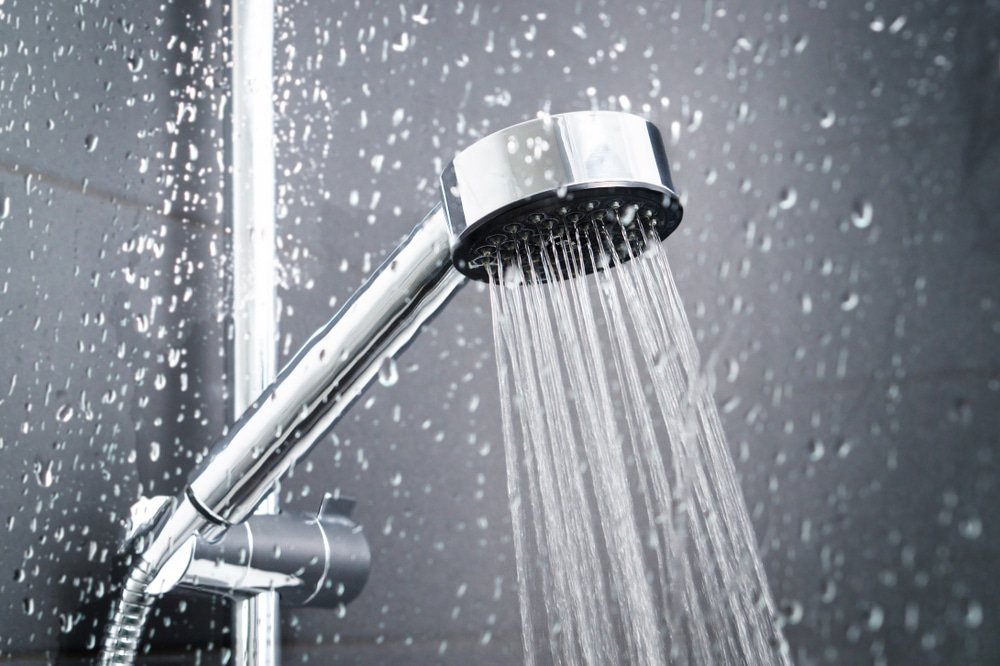
Although it may be tempting to opt for a water softener shower head as an alternative to installing a whole-house water softening system, it’s essential to know the facts. Water softener shower heads don’t always achieve the same results as promised over a long period.
You can find some high-quality water softening shower heads out there that will work for a short time, but you will have to frequently change the filtration system to maintain its effectiveness.
Also, you’ll have to shop around. There are many water softener shower head manufacturers out there that claim to remove all sorts of contaminants from your water. A reliable manufacturer should explicitly state what impurities it removes as well as guarantee 99.99% effectiveness.
Installing a whole-house water softening system is always the most effective way to treat your water but comes at a higher price.
Related: Best Shower Filters For Hard Water
Why Can’t Shower Head Filters Soften Hard Water?
Softening water occurs with the removal of magnesium, calcium, and other metals containing positive ions. The hard water must pass through the softener’s mineral tank to correctly complete water softening, which has beads filled with sodium ions.
As the water passes through the filter, the hard water’s positively charged ions attach to the sodium-filled beads and displace them. Essentially, once your water comes out of the filter, it is purified of the metals and only has traces of sodium ions in it.
In a proper water softener system, the brine solution will enter the mineral tank to replenish the lost sodium ions through the process. The magnesium and calcium ions from the hard water pass through the drain.
The process of water softening looks like this:
- Hard water enters the water softener mineral tank.
- Calcium and magnesium ions from the hard water cling to the beads and displace the sodium ions.
- Sodium ions are released into the water, replacing calcium and magnesium.
- Water softener system starts regenerating.
- Water flow reverses to clean out the water tank.
- Brine solution enters the water softener mineral tank.
- Sodium ions replace the calcium and magnesium ions on the beads.
- Calcium and magnesium ions get flushed down the drain.
- The brine solution flushes the mineral tank.
- Brine tank refills
- Repeat
Because this process is rather complicated, a shower head filter can’t technically soften water properly. Showerhead filters might work well initially, but they will not have much longevity without these sodium ions’ frequent regeneration.
The only way to continually regenerate the sodium in water softeners is by immersing them in the robust brine solution, which shower water softeners are not always capable of handling. Without the regenerating process of sodium, the system essentially becomes useless.
Related: How To Tell If Your Water Softener Is Working
How to Soften Water in Shower
The most effective way to soften water in your shower is by installing a whole house water softener. That way, you have peace of mind in knowing that every drop of water coming into your home is soft and filtered.
Keeping that in mind, it’s important to note that whole-house water softening systems can be costly. The national average cost of installing a whole-house water softening system is around $3,000, which is why there are cheaper alternative products out there.
Water softener shower head filters are a cheaper option, but they don’t always work as effectively as you might think. Although whole-house water softening systems are expensive to install, it might be worth footing the bill upfront on a system that is proven to work long term.
There are three popular whole-house water softening systems: reverse osmosis filtration, potassium chloride water softening, and sodium water softening.
Reverse Osmosis Filtration
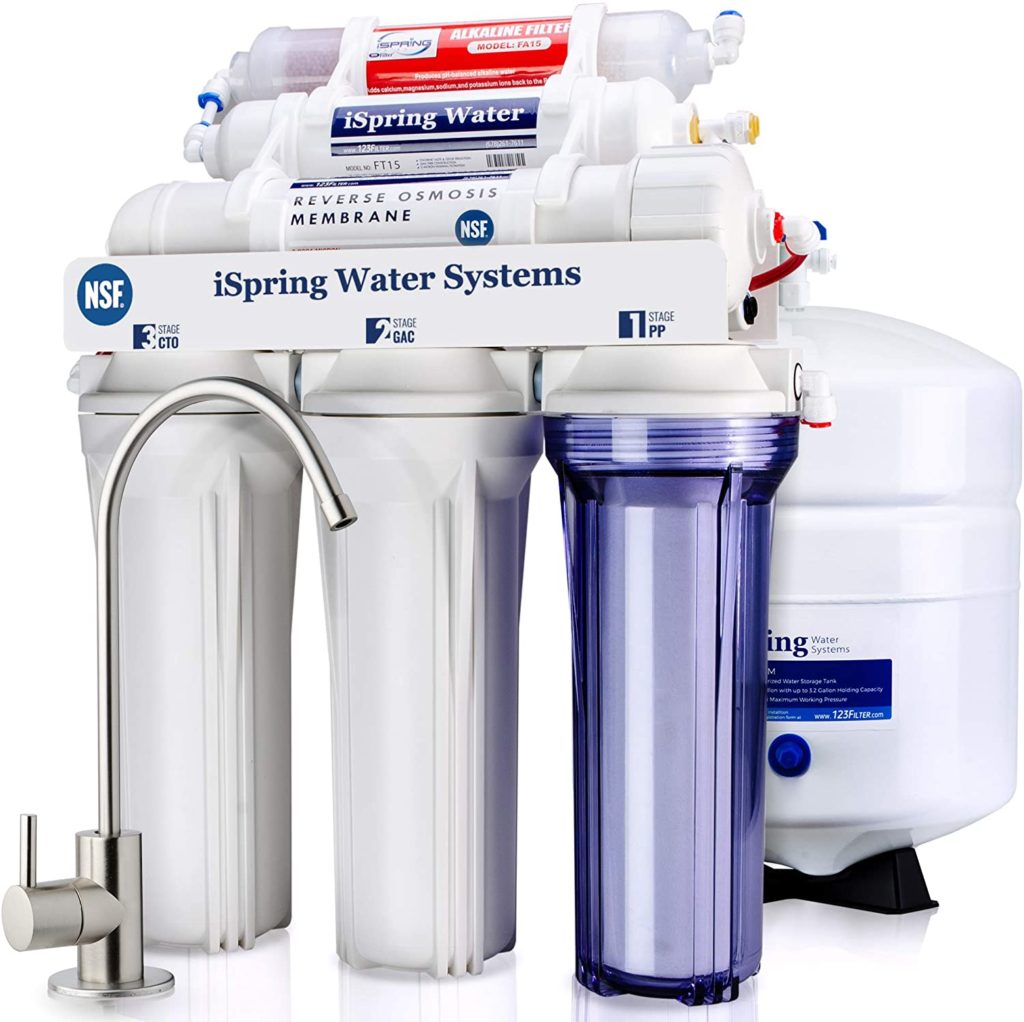
Reverse osmosis filtration systems are also referred to as hyperfiltration and are the best water treatment for households.
Not only is it highly effective in removing calcium and magnesium ions from your water, but it also works to remove pathogens and other contaminants in your water. This filtration system can help to remove foul odors or tastes in your hard water.
A reverse osmosis filtration system is compact and relatively low maintenance. The one downside to these systems is that it is not the most effective in removing chemicals like chlorine or other pharmaceuticals found in hard water.
- Efficient at removing calcium and magnesium ions in hard water
- Eliminates any foul odors or tastes
- Removes pathogens
- Low maintenance
- Compact design
- Not useful in removing chlorine, pesticides, etc
- It needs an activated carbon filtration.
- Wastes water – can take up to five gallons for every one gallon purified.
- Removes healthy minerals from water
Potassium Chloride Water Softening
The potassium chloride water softeners use potassium chloride, removing harsh minerals in your hard water. Like a standard water softening system, it goes through the same process involving the ion-exchange, but potassium is released into your water rather than sodium.
The benefit of added potassium in your water is that it’s an electrolyte that helps maintain more normal blood pressure. But, if you have a medical condition like diabetes or heart disease, you’ll need to talk to your doctor before switching to potassium-enriched water in your household.
Additionally, people tend to prefer the taste of water that has added potassium rather than sodium (salt).
- Effectively removes calcium and magnesium from hard water.
- People with low-sodium diets can use it.
- Better taste
- Better color
- More expensive than sodium system
- Some people don’t like the taste.
- It doesn’t filter out contaminants.
Sodium Water Softening
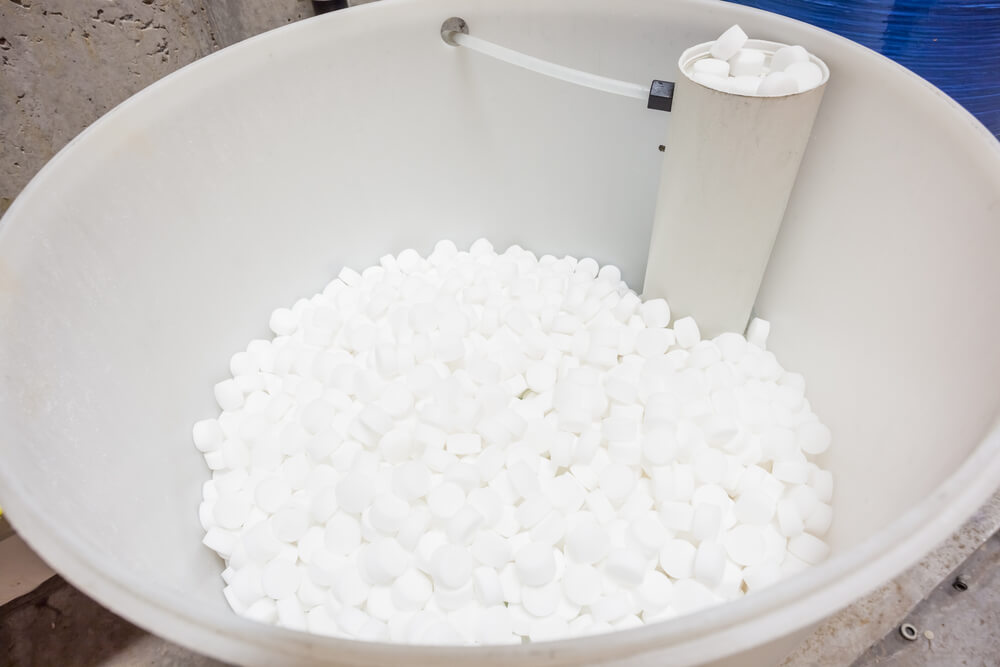
Sodium water softening systems are the most common whole-house filtration systems out there. It is instrumental in removing the harsh chemicals, calcium, and magnesium, from your hard water.
Of the different whole-house water softening systems, sodium water softeners have the lowest costs and require the least amount of maintenance. The only requirement is that you periodically have to replenish the salt in the system to charge up the resin beads.
It’s important to note that some people are not particularly keen on the fact that sodium softened water has a more salty taste.
- Efficient at removing calcium and magnesium ions in hard water
- Most affordable whole-house water softener
- Minimal maintenance
- Low operating costs
- Some people don’t like the salty taste of water.
- Not approved for anyone on a low-sodium diet
- Buying and carrying around salt sacks can be burdensome.
- Some systems stop working while you change out the salt.
Benefits of Soft Water From Shower
Water softeners work in removing the minerals, primarily calcium and magnesium, in your hard water. As a result, benefits from having soft water can result in more naturally healthy skin. Hard water can dry out your skin and even, in some cases, cause rashes or eczema outburst. Softer water will keep your skin more hydrated and glowing.
The condition of your hair will also improve with softer water in the shower. The minerals in hard water can cling to your hair, weighing it down and causing it to look lifeless. Softer water will leave your hair looking full of life, more vibrant, and more manageable.
You will also be able to enjoy cost savings in terms of the soap and shampoo you will use in the shower. Since softer water has a reduced mineral count, the fatty acids in your soaps don’t cling to each other, meaning you will use less product for an equal clean.
In addition to seeing the difference on your body, you will also notice that soft water is better for your laundry. Your clothes and towels will have a softer feel and retain their brightness when you use soft water versus hard water in your laundry.
Because water softeners remove the harsh minerals from your hard water, they will also help prevent scale deposits. You’ll notice a significant decrease in buildup on your tubs, showers, and sinks.
Your larger household appliances will also benefit from a water softening system. Washing machines, water heaters, and dishwashers are prime examples of devices that will last longer when run with soft water.
Conclusion
Although it might seem like a water softener shower head will provide a good bang for the buck, they aren’t always all they’re cracked up to be.
Even if you’re able to find a high-quality showerhead from a reputable manufacturer, it will only be effective in softening your water for a limited amount of time due to the complexities involved in the water softening process.
The good news is there are other water softening solutions that will work to help make your shower the best water possible. Rid yourself of dry skin and hair forever by opting for a whole-house water softening system and remove all those harmful contaminants in your water, whether they be minerals, metals, or bacteria.

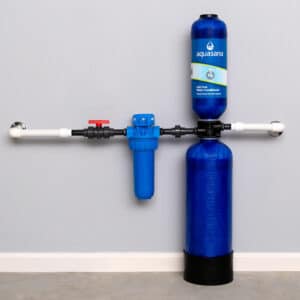
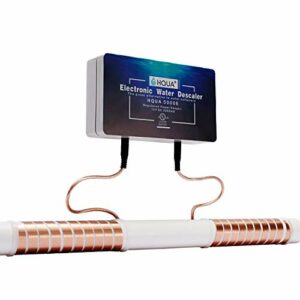
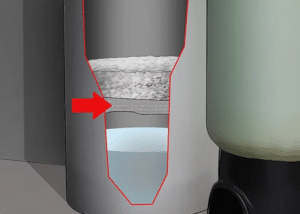
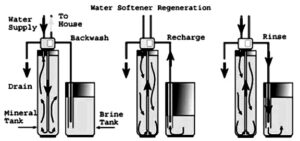
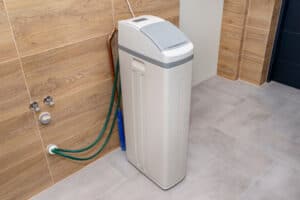
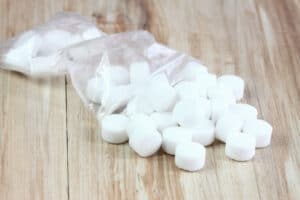
In myarea we who live in condos are not allowed to have salt water softeners because I would guess the insurance on the condo does not cover damage due to a leak .What is my solution? I’m not that concerned with hard water .It’ only when I shower that my skin is scaly and itchy.
Hi William, have you specifically been told by your condo landlord that this isn’t allowed and there are no alternatives? When you say you’re not concerned with hard water, does that mean you’re not sure if your water is hard? Regarding scaly and itchy skin, does that happen year-round or just right now during winter? The reason I ask is because winter’s cold temperatures and having dry (heated) air indoors definitely plays a part in scaly itchy skin, too.